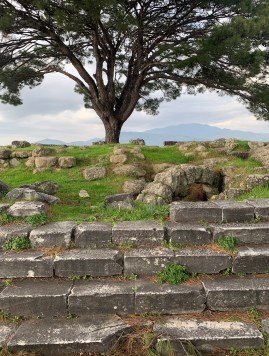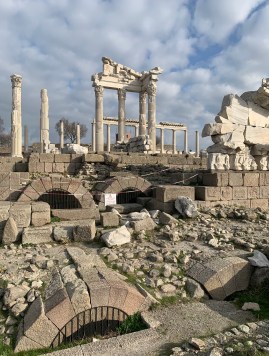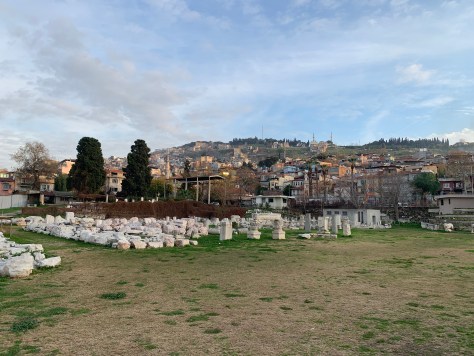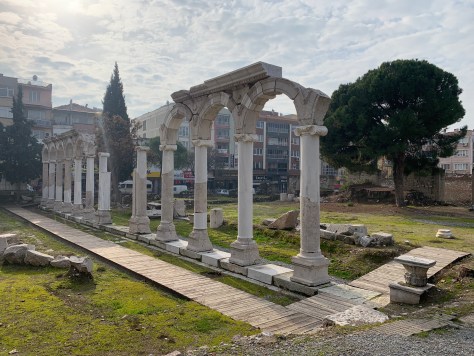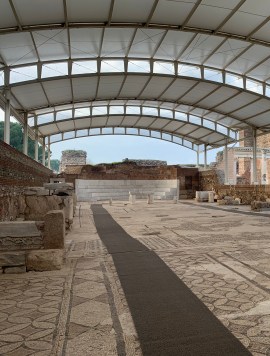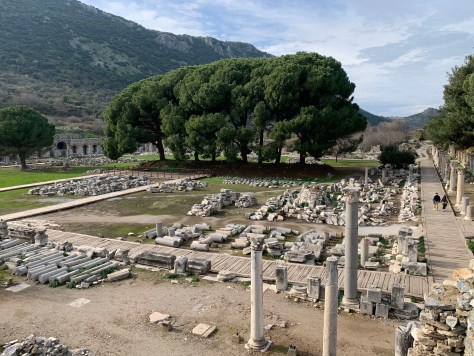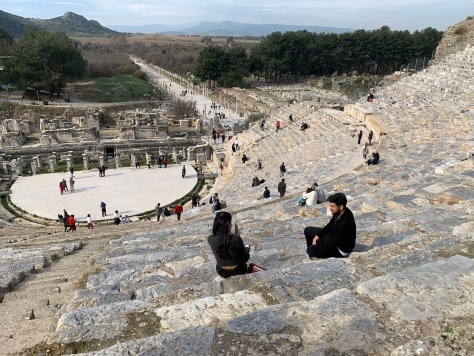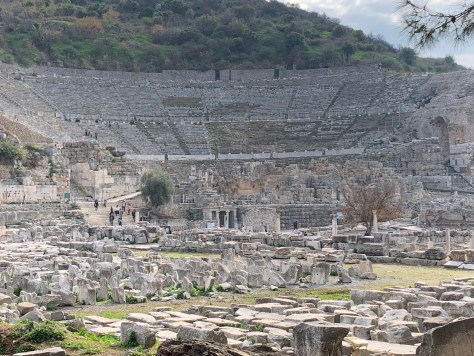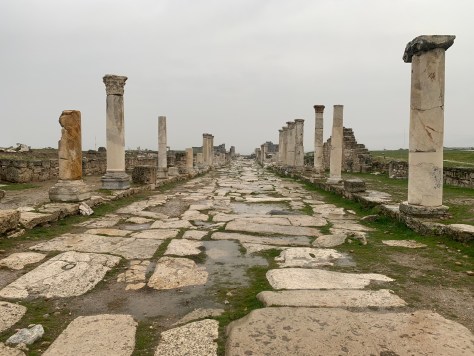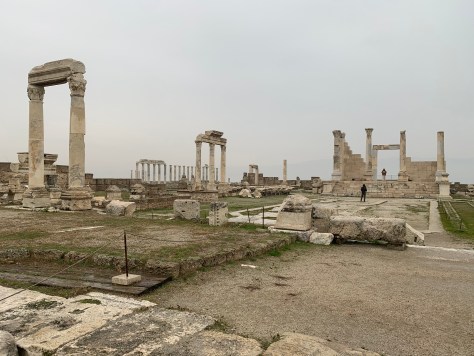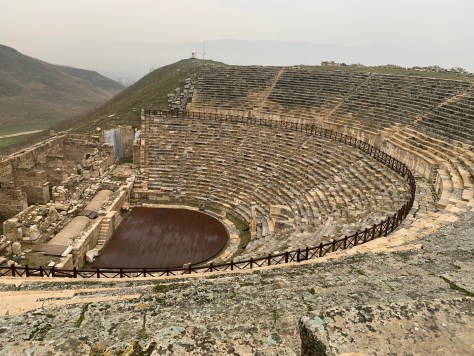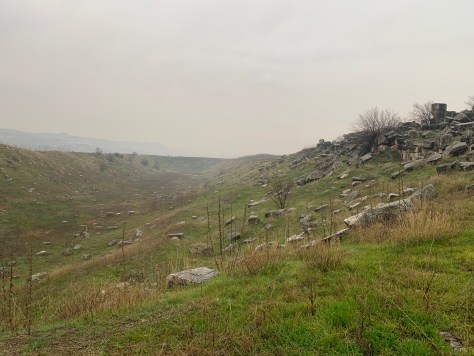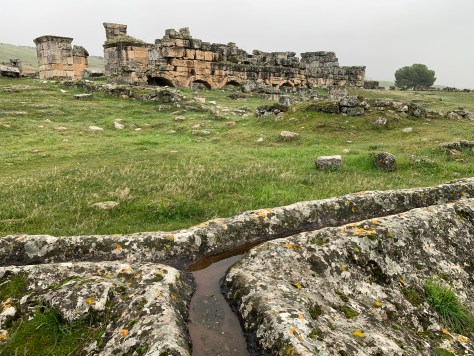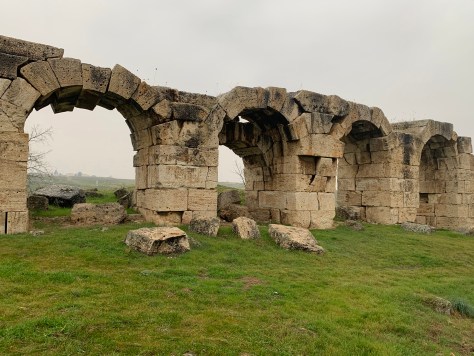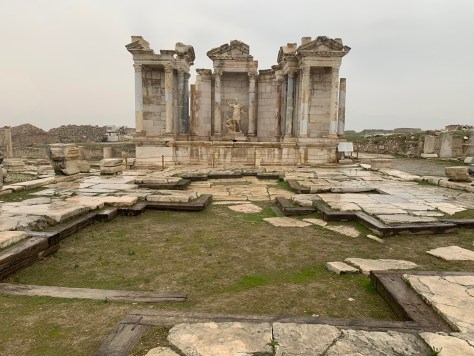Years ago, I taught a Bible study that I knew would be controversial. I was a couple years into seminary, and my church asked me to join a team of teachers for the weekly women’s Bible study. We were going through Genesis, and I received the sign-up sheet after everyone else had already selected their texts, leaving me with one option: Genesis 18–20. Next to the chapters listed on the sheet, it simply read, “Sodom and Gomorrah.”
Though I was mildly horrified by my assignment, I ended up teaching a lesson on the theme of hospitality across the three chapters. I explained that God judges multiple nations in these chapters by their willingness or unwillingness to welcome foreigners. I employed all the tools of my seminary education, and I was confident in my interpretation.
But a few days before I was to give my lesson, our governor enacted a ban on any refugee resettlement in the state, preventing (carefully vetted) refugees from settling in the state. It seemed to me that there was a clear application of the text in our present circumstances, and while I was afraid of criticism, I decided to make the connection.
A few hours after my lesson, the pastor I was working under at the church texted me, “What did you say in Bible study this morning? Some of the women are coming to meet with me tomorrow to talk about it.” I was terrified and spent the rest of the afternoon working up my defense.
I had recently started spending a lot of time talking about politics on Twitter, and I’d interacted with lots of Christians critical of the refugee resettlement program, some of them making xenophobic or racist arguments in support of their position. As I prepared to defend my lesson, those were the voices shaping my approach. I regretfully returned to work the next day ready to fight, convinced of the malevolence of my detractors before I’d even heard their concerns.
Much has been written about the corrosive effects of the internet on our civic life: how virtual relationships have replaced in-person connections, how algorithms fuel polarization, how the proliferation of sources drives misinformation.
I am concerned, however, not merely about how the internet teaches us to talk to each other on social media platforms but also about how those exhausting interactions drain us of the resources we need to have hard conversations offline.
Our malformed communication habits do not stay on the internet. The way we learn to talk to each other in the cramped context of algorithm-fueled social media platforms shows up at our dinner tables, church pews, and neighborhood sidewalks. We learn to fear or detest anyone from the other party, we learn what form and tone criticisms should take, we learn where battle lines have been drawn.
Perhaps more concerning than all of that, though, is the way our energy is drained online—leaving us without the strength and emotional bandwidth necessary for discussing contentious issues with the people in our real lives.
Debating trolls, slogging through bad-faith arguments, and shielding ourselves from ad hominem attacks online leaves limited emotional and mental resources for in-person conversations. We might be forgiven for learning, over repeated interactions online, that people from the other party are unambiguously evil or stupid. It is natural to become defensive and frazzled after facing an onslaught of cruel attacks. It is reasonable to assume the worst of people when you’ve been exposed to the dark side of humanity over and over again.
We need more than good policy proposals and party platforms for a healthy election season. We need people who are “quick to listen, slow to speak, and slow to become angry” (James 1:19), who rid themselves of “anger, rage, malice, slander, and filthy language” (Col. 3:8), and who refuse to tell lies about their opponents but live peaceably and gently (Titus 3:1–2).
This is a task that sounds simple but may require us to actively detach ourselves from the platforms that drain us of the internal resources necessary to resist their corrupted norms.
The day after the Bible study, I went into my boss’s office with a ten-point argument prepared, but I never had to make it. I discovered that the women who had met with my boss, the pastor over missions and outreach, had come to him with one question: Why aren’t we doing more to serve our refugee neighbors?
I had been grievously wrong about the women I served. While I did later discover deep divisions and distrust in that community, I was wrong about this instance. I was wrong for many reasons that shape our dysfunctional political life these days: I made judgments about these women based on their age and race; I assumed the worst of others; I was quick to jump to defensiveness when I feared criticism. But there’s another reason I was wrong: I was spending more and more of my time debating about politics on the internet.
If that meeting at my church had gone differently—if the women had come with criticisms of my lesson or questions about the appropriateness of my application—I would not have addressed their concerns with kindness and grace. I was primed by my internet activism to treat their concerns with condescension and to assume the worst of their intentions.
More than that, I was exhausted by the constant criticism, anger, and cruelty all around me online. I was too tired to muster up compassion for their concerns, too beaten down to remain open to the possibility that they might have something to teach me.
I spend a lot of my time talking to pastors and churches about political life, and many of them ask me to come speak right before an election. They are rightly discerning that this season is uniquely challenging and they will need help guiding their congregations into healthier ways of living together. Yet I wish more of our churches instead asked together: What do we need to do now so that we have the capacity to serve our neighbors when the election is over?
This election will have material effects on our most vulnerable neighbors. But regardless of who wins the presidency and what party is in power, our neighbors and neighborhoods will need people who can serve them, be in relationship with them, and collaborate with them on the greatest needs of our communities.
We need to remember that we are finite creatures whose resources will be depleted by tense and difficult conversations—and to discern where those resources will be best spent. We should consider whether the energy we are exerting trying to persuade strangers on the internet could be conserved for the sake of our physical neighbors.
There are a variety of tangible ways to seek the good of our communities: showing up to a city council meeting, volunteering at a local public school or crisis pregnancy center, hosting the neighborhood for a potluck.
We don’t all need to swear off social media. But we can consider the cost of it more seriously and allocate our limited resources more thoughtfully.
Kaitlyn Schiess is the author of The Ballot and the Bible: How Scripture Has Been Used and Abused in American Politics and Where We Go from Here.


















